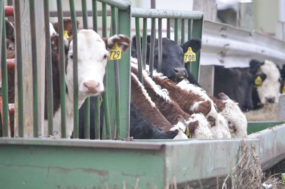It is marketed and appealing to the existing vegetarians and/or vegans who want the pseudotaste, texture and look of real meat, but without the supposed guilt they feel eating actual meat (animals) brings them.
Fake meat is also being pushed by various tree-hugging groups pushing for less meat consumption because their figures claim 60% of all agricultural land is being used for animal production, with its associated detrimental environmental side effects. I would call the fake meat movement a fad, like a pet rock. But then I also thought mainstream tattooing would be a fad, and it has hung around, albeit as a niche item for a limited few, which is what I think fake meat will be. Already, Red Lobster restaurants have come out against fake seafood, saying it is terrible.
As a market, some governments around the world may utilize fake meat as a protein base and supplement to feed the masses fairly inexpensively. But unless we have catastrophic climate events or a nuclear winter, I don’t see fake meat ever equaling demand for real meat any time soon. This argument is supported by the fact that Asia, and especially China, is just now becoming a large and growing meat-consuming market as their citizens move up the socioeconomic ladder. Historically, around the world in every culture, as people become more prosperous, they eat more meat and other animal products, not less. And even here in the U.S., consumers are eating more beef, not less, as the media would have you believe.
Humans learned long ago that red meat is an extremely nutritious and tasty part of any diet – high in protein, minerals and vitamins such as B3, B12 and B6, as well as iron and zinc. It is no coincidence, that for hundreds of years, doctors have been advising people with “iron-poor blood” (iron deficiencies) to simply “eat more red meat.”
Let’s take a look at the new Burger King “Impossible Whopper” with its plant-based ingredients – it contains roughly the same number of calories and fat as a traditional meat Whopper, but the meatless burger has 9 more grams of carbohydrates (plant material) and a ridiculous five times more sodium as real beef. And because these are highly processed foods, plant-based fake burgers lose almost all of the beneficial phytonutrients that are present in natural plants, such as antioxidants, vitamins and minerals.
As one nationally recognized nutritionist/dietician put it, “Don’t kid yourself into thinking that it [Impossible Whopper] is any better for you than a meat-based burger.” And don’t get me started on highly processed “lab-grown meat” products. As far as labeling is concerned, products are either animal, vegetable or mineral; calling plant-based protein “meat” is an oxymoron and deceptive. Basically, if you don’t want meat, eat a salad! ![]()
Jim Walker is a farmer, rancher and all-around thorn-in-the-side with Land's Feed Warehouse in Grand Saline, Texas, who opines on current events affecting the cattle industry. Email Jim Walker.







